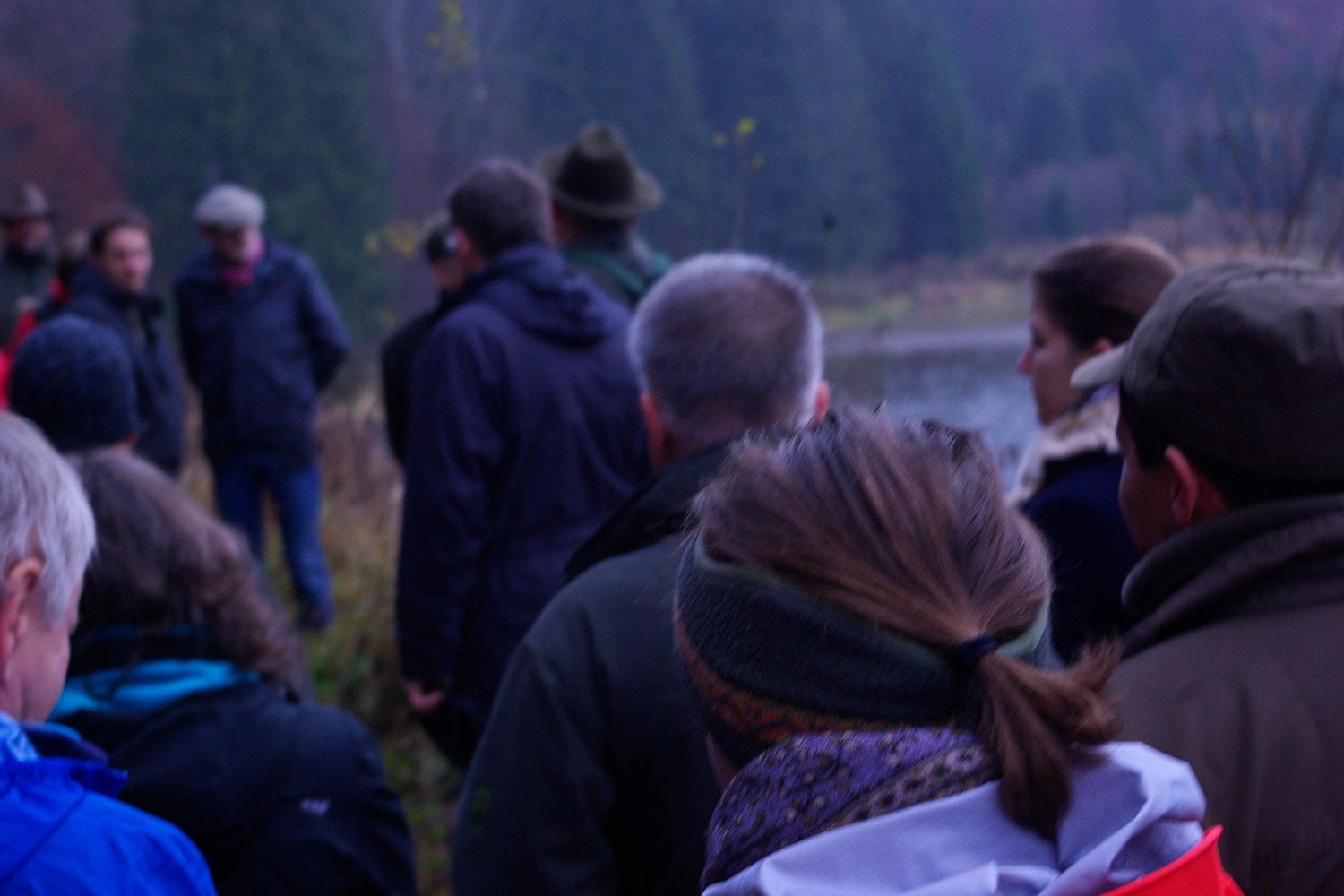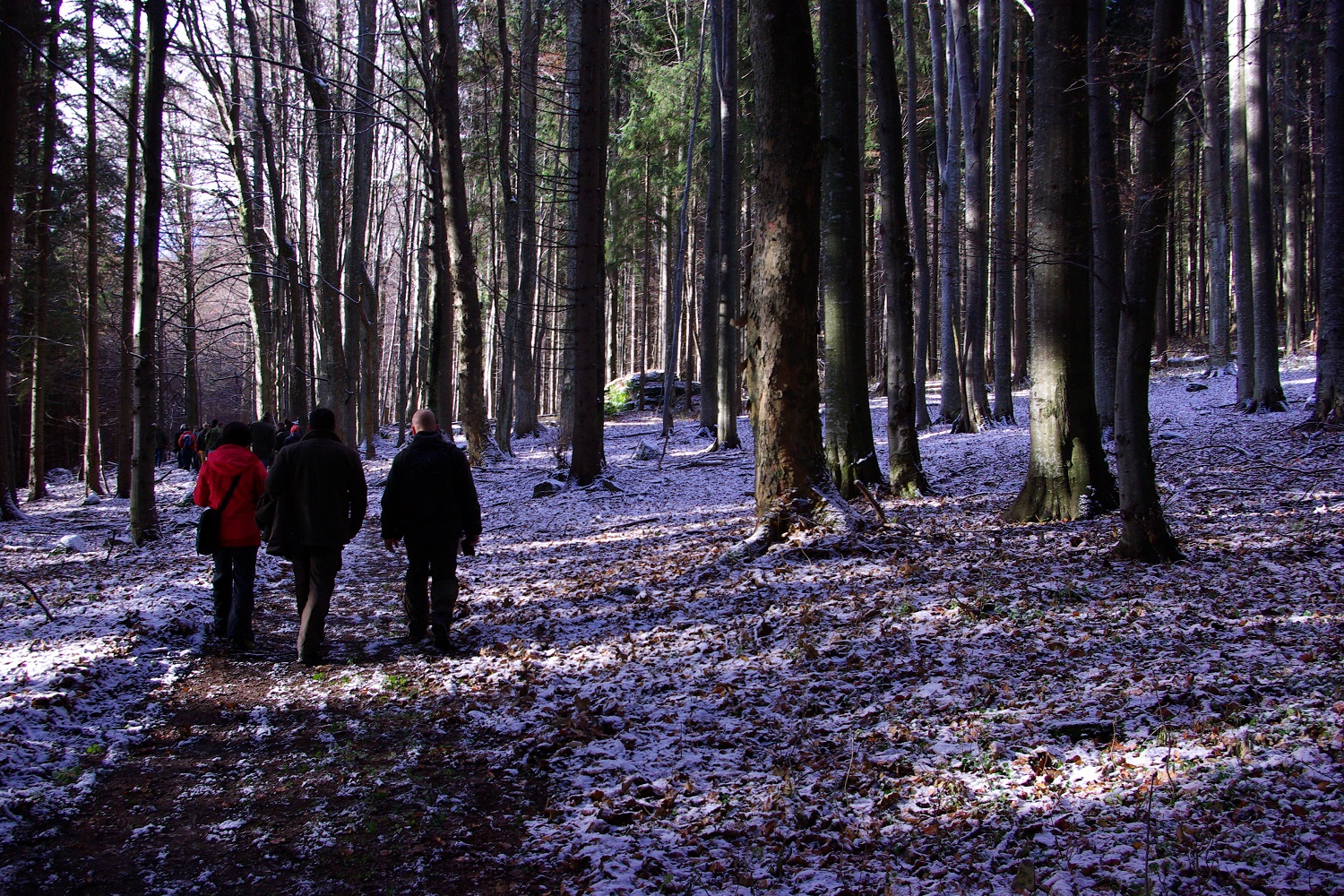Fraunhofer IMW
Research Project “ALTERFOR” on Alternative Forest Management Ends with Digital Final Conference
For four and a half years, researchers in the joint project “Alternative models and robust decision-making for future forest management* (ALTERFOR)” investigated various approaches to alternative forestry. Researchers of Fraunhofer IMW ensured a systematic transfer of knowledge between science and practice.

The collaborative project “ALTERFOR” ended with a digital final conference on September 10 and 11. 20 partners from nine European countries investigated alternative forms of forest management in the research project over a period of four and a half years. For this purpose, different forestry management methods were applied and analyzed in ten regional forest areas.
During the conference, the participants had the opportunity to take a virtual tour through one of these forest areas. In various presentations, the scientists also summarized key findings from the project - both on aspects of forestry and its political framework and on methods of knowledge transfer that were used in the project.
Annamaria Riemer, head of the Professionalization of Knowledge Transfer Processes Unit at Fraunhofer IMW, and Inga Döbel, deputy unit head until June 30, had a leading role in the organization of knowledge transfer in "ALTERFOR". The heterogeneity of the stakeholders proved to be a particular challenge. An important approach in "ALTERFOR" was therefore to organize direct communication channels for the exchange between science and forestry practice.
Travellabs: Learning on the go
"In order for a project like "ALTERFOR" to have an impact and produce results that offer real added value in practice, it is very important to ensure direct discussions between the researchers on the one hand and the owners of the forest areas on the other. We have systematically pursued this in 'ALTERFOR' with the 'Travellab' approach," says Riemer.
The scientists paid a total of four visits to the "Travellab", each time visiting one of the ten forest areas under investigation, where they gained extensive insight into the context of the local study. During the subsequent tour of the forest, the researchers discussed the condition, development and challenges in the management of the forest area together with local practitioners.
The scientific coordinator of the project, Vilis Brukas from the Swedish University of Agricultural Sciences, described the implementation of the "Travellabs" as a "very fruitful approach to learning". Zuzana Sarvasova from the National Forest Centre - Forest Research Institute Zvolen was also convinced of the Fraunhofer method of travelling and learning together: "The ALTERFOR project uses Travellabs as a tool to provide a platform for knowledge exchange between science and practice. During the event in Slovakia, foresters and other stakeholders openly expressed their views on the current challenges in the forestry sector. The ALTERFOR research partners were able to help meet their expectations with professional advice," said Sarvasova following the first Travellab in Zvolen, Slovakia.
Internal exchange through evaluation
In addition to transferring knowledge and findings into practice, Ms. Riemer's research team also ensured regular exchange within the collaborative project through systematic evaluations. "Our experience at Fraunhofer IMW shows very clearly that strategically planned knowledge transfer between the participating partners and external stakeholders is of great benefit in collaborative projects," Riemer emphasized. For example, she said, the evaluation method in "ALTERFOR" meant that the researchers were able to pursue their goals precisely and were always informed about the respective research statuses. The subsequent analysis and evaluation of processes also enabled efficient error management.
The final conference ended with a last evaluation: Under the title "How did we do? Self-evaluation of ALTERFOR", the participating scientists reflected on the course of the project, the cooperation and the results. These had to be considered on different levels. "On the one hand, we have the tangible results: These are simulations, scientific papers, the regional case studies and the travel labs. But just as important are less tangible effects, such as increasing knowledge of alternative approaches to forestry among practitioners. Only when these components interlock will long-term changes in the sense of sustainable management also become possible on a larger scale," Riemer summed up.
Funding
This project has received funding from the European Union’s Horizon 2020 research and innovation programme under grant agreement No 676754.


